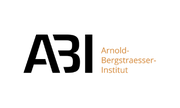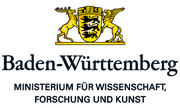Event series ‘Our forgotten liberators - (de)colonial perspectives on the Second World War’
The Second World War ended 80 years ago. Countless people and all continents were shaken by this war, the centre of which was Germany. The National Socialists had started the world war in 1939 with the invasion of Poland, and eventually extended it beyond Europe to Asia, Oceania, Africa and the Americas. Nevertheless, the Italian Abyssinian War in Ethiopia/Eritrea in 1935 and the Second Sino-Japanese War from 1937 onwards must be seen as part of this global war, as both were started by the Axis powers Italy and Japan, which were allied with Germany. However, it should not be forgotten that the number of people from all over the world who opposed the Nazis militarily was far greater than the number of their international allies.
This global dimension of the Second World War has long been a topic of interest for the iz3w. In 2009, together with Karl Rössel from the Rheinisches JournalistInnenbüro, issue 312 of the iz3w magazine was published on global collaboration with the Nazis. In 2010/11, the exhibition ‘The Third World in the Second World War’ was shown in Freiburg. The iz3w has also published numerous articles on this topic in the iz3w over the last twenty years.
On the occasion of the 80th anniversary of the liberation from Nazi Germany, the iz3w would like to commemorate both its victims and the resistance fighters from the Global South with numerous lectures and a film series with guests from Algeria, France, Italy, Brazil, Korea and the USA. The aim is to contribute to a change in perspective from a Eurocentric to a global historiography. Europe, and Germany in particular, must face up to the historical responsibility it has towards continents, countries and regions that were shattered by colonisation and war. Inextricably linked to this is also the responsibility towards people who are fleeing their countries of origin and seeking protection and asylum here today.
Tue 11 March, 19:30
Lecture: Our victims don't count - The Third World in the Second World War
with Karl Rössel (recherche international, Cologne)
In Europe, the Second World War began on 1 September 1939, in Africa there had already been a war over Ethiopia since 1935 (with soldiers from 17 countries and 4 continents) and the Japanese attack on China had already begun in 1937. By 1945, millions of soldiers from the Third World had made an important contribution to liberating the world from European fascism and Japanese delusions of grandeur. Large parts of the Global South also served as battlefields and were left devastated after the end of the war. In China alone, the war claimed more victims than in Germany, Italy and Japan combined. But facts like these have hardly featured in local historiography to date.
Karl Rössel, curator of the exhibition ‘The Third World in the Second World War’, provides information about this with photos and original sounds from contemporary witnesses.
Dilger Winery, Urachstr. 3, Freiburg
Sun 06 April, 19:30
Film: Cinema, Aspirinas e Urubus
Municipal cinema Freiburg, Urachstr. 40
Tue 08 April, 19:30
Lecture: The Brazilian liberators of Italy
with Luis de Olivera (Italy/Brazil)
Freiburg Theatre, Winterer Foyer
Wed 16 April, 19:30
Film: Camp de Thiaroye
Municipal cinema Freiburg, Urachstr. 40
Tue 22 April, 19:30
Film: On the road as a safe place
Communal cinema Freiburg, Urachstr. 40
Fri 09 May, 19:30
Lecture: The Holocaust and North Africa
by Aomar Boum (Professor of Anthropology and Sephardic History at the University of California in Los Angeles, USA)
In 2018, the United States Holocaust Memorial Museum published a depressingly comprehensive ‘Encyclopaedia of Camps and Ghettos’ in the countries and colonies controlled by Nazi Germany's allies. In it, the more than 100 little-known camps of the fascist Axis powers in North Africa were described in detail for the first time. One of the authors was the Moroccan-born historian Aomar Boum, who teaches in the USA and also co-edited the essay collection ‘The Holocaust and North Africa’ as well as documents on the (war) years 1934-1950 in North Africa.
In his lecture, Aomar Boum describes - starting with Jewish-Muslim relations in the 1930s - the consequences of Vichy rule for the Jews of North Africa and for refugees from Europe, the function of the labour camps in the region and the current state of research on the subject.
With translation from English
Peterhofkeller, Niemensstr. 10, Freiburg
Tue 13 May, 19:30
Film: Les Massacres de Sétif, un certain 8 May 1945
followed by a discussion with filmmaker Mehdi Lallaoui (Paris)
Communal cinema Freiburg, Urachstr. 40
Tue 13 May, 14:00-16:00
Lecture: Rediscovering the Colonial and Decolonial Interdependencies through the Footsteps of Frantz Fanon
As part of the lecture ‘Global and Regional Transformations: Theories, Trends, Interdependencies’
Social transformations reflect interdependent processes that take place in various world regions simultaneously. In this session, interdependencies of colonial and decolonial developments between various regions such as the Caribbean, Europe and Africa during and after the Second World War will be rediscovered through the footsteps of Frantz Fanon with unique and creative contributions by Alice Cherki and Mehdi Lallaoui.
The lecture will be held in English.
Guests: Alice Cherki and Mehdi Lallaoui (Paris)
HS 3043, KG III, Platz der Universität 3, Freiburg
Wed 14 May, 19:30
Film: Sur les traces de Frantz Fanon
followed by a discussion with filmmaker Mehdi Lallaoui & contemporary witness Alice Cherki (Paris)
Municipal cinema Freiburg, Urachstr. 40
Mon 19 May, 19:30
Lecture: Women in the anti-Japanese and anti-colonial resistance
with Agnes Khoo (Malaysia, Singapore, Netherlands)
Kulturaggregat, Hildastr. 5, Freiburg
Tue 20 May, 17:00-20:00
Workshop: ‘The Third World in the Second World War’
with a distant view at iz3w
In local school education, the topic of the Second World War is dealt with almost exclusively from a national perspective - the global dimensions of the war or the connections to (German) colonial history, on the other hand, are hardly ever mentioned.
The workshop organised by fernsicht at iz3w uses interactive methods to provide an overview and an introduction to the topic of ‘The Third World in the Second World War’. In impressive audio and video recordings, contemporary witnesses from countries of the Global South will have their say. Together we will discuss how a culture of education and remembrance should be designed to include the forgotten liberators of German fascism.
The workshop is aimed at all interested parties and can also be booked separately for school classes or teachers via the iz3w.
Haus des Engagements, Rehlingstr. 9, participation free of charge, registration at: bildung@iz3w.org
Wed 21 May, 7:30 pm
Film: Because we were beautiful
followed by a discussion with Nataly Han (Korea Association Berlin)
Municipal cinema Freiburg, Urachstr. 40
Tue 03 June, 19:00 & 21:00
Lecture: African colonial soldiers from a German perspective - war, racism and gender in the 19th and 20th centuries
Racist images of African colonial soldiers were coined as early as the Franco-Prussian War of 1870/71 and then perpetuated in the debates on colonial wars during the German Empire and in the Weimar Republic in the campaign against the occupation of the Rhineland. The images served as propaganda against enemy powers, but also negotiated gender relations and the ‘whiteness’ of German society itself. During the Nazi era, this was reflected in the forced sterilisation of hundreds of children of colonial soldiers and white mothers as well as in numerous ‘approved massacres’ of colonial soldiers by the Waffen SS. Colonial soldiers from North and West Africa, for example, played a significant role in the liberation of Alsace and Baden from the Nazis. The sexualised violence perpetrated against civilians is still publicly present today, while the actions of white soldiers have tended to be ignored. Above all, however, the violence perpetrated against colonial soldiers and the racism that continued to be perpetuated and suffered by the children of white women and colonial soldiers even after 1945 remained a marginalised topic.
with Heiko Wegmann
Film: Africans also liberated Alsace
Municipal cinema Freiburg, Urachstr. 40
With the financial support of the State Parliament and the State Ministry of Baden-Württemberg via the Baden-Württemberg Development Cooperation Foundation, sponsored by Bread for the World with funds from the Church Development Service, INTA Foundation, Sparkasse Freiburg-Nördlicher Breisgau, Freiburg Cultural Office
An event by iz3w and Kommunales Kino Freiburg in cooperation with ACT - Africa Center for Transregional Research, Blaues Haus Breisach, Centre Culturel Français Freiburg, DEAB, De/Coloniality Now, FAIRburg, Frankreich-Zentrum, freiburg-postkolonial, Institut für Sozial- und Kulturanthropologie, KoBra - Kooperation Brasilien, Kulturaggregat, recherche international, Theater Freiburg, Weingut Dilger






